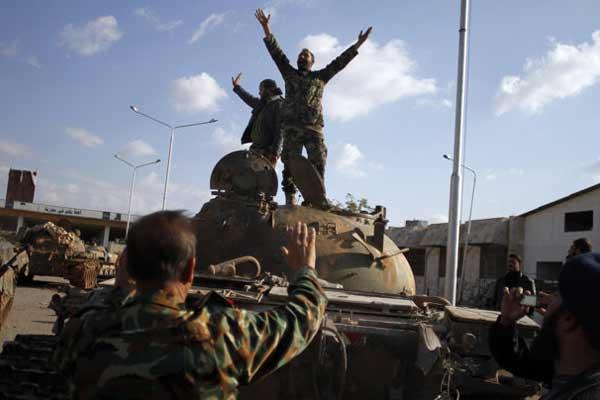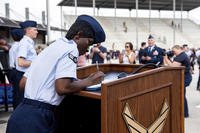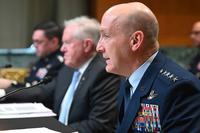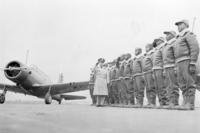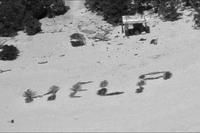The Obama administration said Sunday that its stance against U.S. "boots on the ground" in Iraq also applies to Syria in the effort to "degrade and destroy" the Islamic State of Iraq and the Levant.
"Ground forces in Syria will be Syrian," said Denis McDonough, the White House chief of staff.
"The president made a decision on that, we're not going to do that," McDonough said on "Fox News Sunday" when asked if U.S. ground forces might act in Syria.
In the effort to organize a long-term strategy against ISIL, McDonough, who went on all the Sunday talk shows, said that Obama will meet Tuesday at the White House with retired Marine Gen. John Allen, the former U.S. commander in Afghanistan.
Allen has been named a special envoy to coordinate a coalition of Arab states in the region against ISIL and press for the training of "moderate" Syrian opposition fighters to combat ISIL in Syria.
On Wednesday, Obama will go to U.S. Central Command headquarters for briefings on plans to roll back ISIL in Iraq with airstrikes and coordination with Iraqi and Kurdish peshmerga forces on the ground, and ultimately to take the campaign against ISIL into Syria.
"It's the men and women of CentCom who will partner with others in the region to carry out our limited military mission in those countries," White House Press Secretary Josh Earnest said at a briefing last Friday.
The Pentagon last week said that the 475 additional U.S. troops being sent to Iraq as advisers to Iraqi and Kurdish forces would operate at the brigade and headquarters levels. However, Army Gen. Lloyd Austin, the CentCom commander, reportedly offered the option to the White House of having the advisers move closer to the front lines with the Iraqis and the Kurds.
The Washington Post also reported that retired Marine Gen. James Mattis, the former CentCom commander, said the mission in Iraq would become more risky without the involvement of U.S. ground troops.
"The American people will once again see us in a war that doesn't seem to be making progress," Mattis said. "You're giving the enemy the initiative for a longer period."
Several retired officers also went on the talk shows to question the White House' strict rules on the use of ground troops and speak to the possibility of having Special Forces "A" teams move with the Iraqi and Kurdish units.
Retired Army Col. John Nagl, who was involved with training the Iraqi national security forces, said "they're not ready yet and I'm afraid they're not going to be ready for a while. It's going to take a much bigger effort," Nagl said on ABC's "This Week" program.
There's "every possibility it will work," retired Army Lt. Gen. James Dubik said of the strategy put forward by Obama that will rely primarily on airstrikes.
"It's a risky venture but not an impossible venture," Dubik said on CNN's "State of the Union" program. However, "it will take Special Operations forces [operating] in conjunction with the Iraqis" to take back territory from ISIL.
Retired Air Force Gen. Michael Hayden, the former CIA director, said on "Fox News Sunday" that "I'm betting that we're up to 5,000 by the end of the year" in terms of U.S. troops in Iraq.
The U.S. effort could get additional support from Britain following the release by ISIL of a gruesome video showing the beheading of British aid worker David Haines.
British Prime Minister David Cameron convened an emergency meeting of his cabinet Sunday and said later "we must drive back, dismantle and ultimately destroy [ISIL] and what it stands for. We will do so in a calm, deliberate way -- but with an iron determination."
ISIL has previously shown videos of the murders of American journalists James Foley and Steven Sotloff. On CNN last week, Foley's mother, Diane Foley, said U.S. government officials pressed the family against raising money that could possibly be used for the ransom of her son.
"I think our efforts to get Jim freed were an annoyance" to the U.S. government, Diane Foley said. "It didn't seem to be in [U.S.] strategic interest, if you will."
On "Fox News Sunday," McDonough said "we didn't threaten anybody" in contacts with the Foley family, but "we made clear what the law is" against paying ransoms.
-- Richard Sisk can be reached at Richard.Sisk@monster.com.
